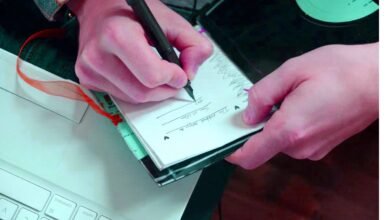Buying Foreclosed Property in Florida Legal Risks & Protections
Buying foreclosed property in Florida offers deals but carries risks like liens & evictions. Learn legal protections for a safe investment.

Buying foreclosed property in Florida can be an attractive opportunity for investors and homebuyers seeking discounted real estate, but it also comes with significant legal risks. These properties are often sold at auction or as bank-owned listings, sometimes at prices well below market value. However, the foreclosure process in Florida involves complex legal procedures, potential title defects, and hidden financial liabilities that can turn a seemingly great deal into a costly mistake. Understanding these risks and the legal protections available is essential for anyone considering this type of investment.
While the potential for high returns makes Buying Foreclosed properties appealing, buyers must navigate challenges such as unclear ownership history, unpaid liens, and property damage. Florida’s judicial foreclosure system adds another layer of complexity, requiring court approval before a property can be sold. This article explores the key legal risks involved in purchasing foreclosed homes in Florida, along with practical strategies to protect your investment and avoid common pitfalls. Whether you’re a first-time buyer or an experienced investor, being well-informed can help you make smarter decisions in this high-stakes market.
Buying Foreclosed Property in Florida Legal Risks & Protections
Judicial Foreclosure System in Florida
Florida’s foreclosure process follows a judicial framework, requiring lenders to file a formal lawsuit and obtain a court order to repossess a property when a borrower defaults on their mortgage. This legal proceeding can extend from several months to multiple years, with the timeline heavily dependent on factors such as court caseloads, the borrower’s ability to mount a legal defense, and the specific circumstances surrounding the default. The process begins when the lender files a pendens and proceeds through various stages including mediation Buying Foreclosed and potential settlement negotiations. If no resolution is reached, the court eventually issues a final judgment of foreclosure, authorizing the property to be sold at a public auction, commonly referred to as a sheriff’s sale.
Buying Foreclosures Auctions vs. REO Properties
Purchasing properties at Florida foreclosure auctions presents investors with the potential for substantial discounts, often ranging from 30-50% below market value, but carries significant risks that require careful consideration. These auction properties are strictly sold “as-is,” meaning buyers cannot conduct interior inspections or request repairs, Buying Foreclosed inheriting substantial structural issues, code violations, or environmental hazards unseen at the time of purchase. The accelerated nature of auction sales leaves little opportunity for thorough due diligence, exposing buyers to risks of inheriting unpaid liens, back taxes, or even unresolved tenant occupancy issues that could lead to costly eviction proceedings.
Legal Risks of Buying Foreclosed Properties
Title Defects & Hidden Liabilities
Foreclosed properties in Florida often come with uncertain title histories, were previous owners, lienholders, or creditors may still have legal claims. Buyer’s risk inheriting unpaid tax liens, homeowner association, or municipal code violations that weren’t resolved during Buying Foreclosed. For example, a second mortgage or IRS lien could resurface after purchase, forcing the new owner to pay these debts or face legal action. Florida’s judicial foreclosure process doesn’t always eliminate all junior liens, making title insurance and a professional title search non-negotiable safeguards.
As-Is Condition & Occupancy Risks
Banks and auctioneers sell foreclosures without warranties, often leaving buyers to discover severe issues like water damage, mold, or stripped plumbing after closing. Former owners or squatters may still occupy the property, triggering costly eviction proceedings under Florida’s tenant-friendly laws. Even after a foreclosure, displaced homeowners might have redemption rights or legal avenues to challenge the sale. Buyers must verify vacancy status and budget for both repairs and potential legal battles to gain Buying Foreclosed.
Legal Protections for Buyers
Secure Title Insurance & Conduct a Title Search
Title insurance is essential when purchasing a foreclosed property, especially at auction, where buyers often have no opportunity to examine the title Buying Foreclosed. A thorough title search should be conducted to uncover any hidden liens, unpaid taxes, HOA fees, or legal judgments attached to the property. Without this protection, buyers risk inheriting costly financial burdens, such as IRS liens or second mortgages that weren’t cleared during foreclosure. Title insurance provides a safety net by covering legal fees and potential losses if ownership disputes arise later.
Leverage Professional Inspections & Negotiate with Banks
While REO properties are generally safer than auction purchases, buyers should still hire a professional inspector to assess structural integrity, plumbing, electrical systems, and potential hidden damage (e.g., mold or termites). Banks selling REO homes often prefer quick transactions and may agree to repair credits or closing cost concessions if issues are found. Unlike auction purchases, REO sales allow for financing and standard contingencies, giving buyers more control over the transaction. However, since these properties are sold “as-is,” any post-purchase repairs become the buyer’s responsibility making inspections a crucial step before finalizing the deal.
Financing Challenges
Limited Financing Options for Auction Purchases
Foreclosure auctions in Florida typically require full cash payments, as most lenders won’t finance properties sold at sheriff’s sales due to their “as-is” condition and unknown title Buying Foreclosed. This creates a significant barrier for buyers without substantial liquid assets. Even if financing is available, traditional mortgages are rarely an option buyers must explore alternative solutions like hard money loans (short-term, asset-based financing) or private lenders, which often come with higher interest rates and fees.
Stricter Requirements for REO Properties
While bank-owned (REO) homes offer more financing flexibility than auctions, lenders still view them as higher-risk investments. Borrowers may face stricter credit score requirements, larger down payments (sometimes 20–30%), or mandatory repairs before loan Buying Foreclosed. For heavily damaged properties, specialized loans like FHA 203(k) renovation mortgages can help cover repair costs, but these require detailed contractor bids and oversight. Partnering with a foreclosure-savvy lender is crucial, as they understand the unique hurdles and can guide buyers toward viable financing solutions.
Read More: How to File a Wrongful Death Lawsuit in Illinois Legal Advice for Families
Conclusion
Buying foreclosed property in Florida presents both lucrative opportunities and significant legal risks that require careful consideration. While the potential for acquiring real estate below market value is appealing, buyers must be prepared to navigate complex legal Buying Foreclosed, including title disputes, hidden liens, and property condition issues. By conducting thorough due diligence, securing title insurance, and consulting with real estate and legal professionals, investors can mitigate these risks and make informed decisions.
Ultimately, success in purchasing Buying Foreclosed properties in Florida hinges on understanding the legal landscape and taking proactive steps to safeguard your investment. Whether buying at auction or through an REO listing, being aware of potential pitfalls and leveraging available protections can help turn a high-risk transaction into a rewarding venture. With the right approach, foreclosed properties can be a valuable addition to any real estate portfolio, but caution and preparation remain key to avoiding costly mistakes.
FAQs
Can I inspect a foreclosed property before buying it?
REO properties usually allow inspections, but auction purchases are often sold as-is with no inspection rights. Always verify access before Buying Foreclosed.
What happens if there are unpaid liens on the property?
The new owner may become responsible for liens. A title search helps identify these issues before purchase.
How long does the foreclosure process take in Florida?
Judicial foreclosures can take 6-18 months or longer, depending on court backlogs and legal challenges.
Do I need a real estate agent to buy a foreclosed home?
While not mandatory, an agent experienced in Buying Foreclosed can provide valuable guidance and access to REO listings.
Can I negotiate the price of a foreclosed property?
REO properties may allow Buying Foreclosed, but auction purchases are typically non-negotiable. Banks may accept lower offers for quick sales.











